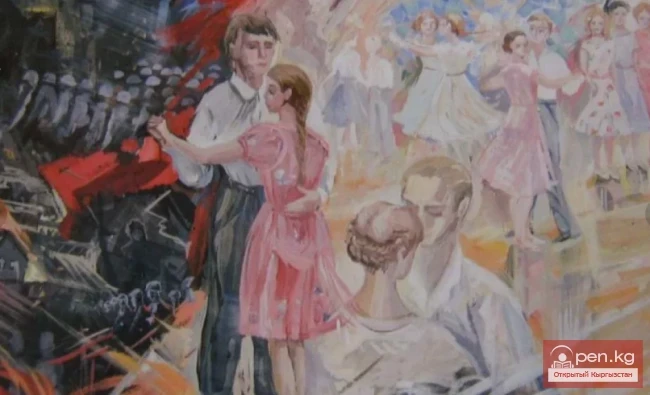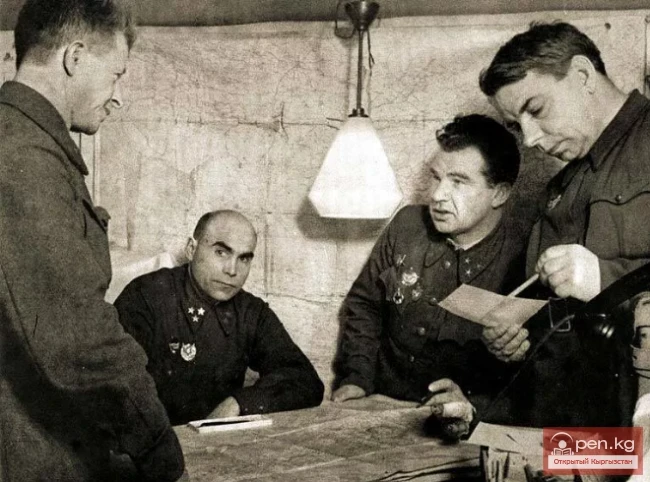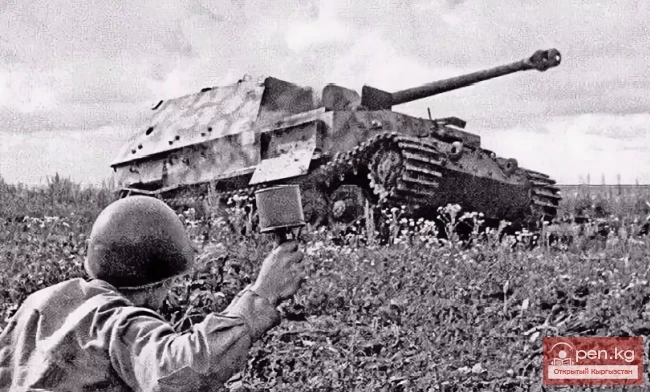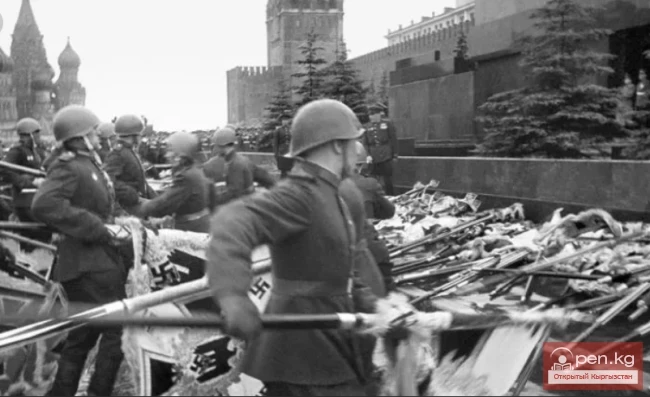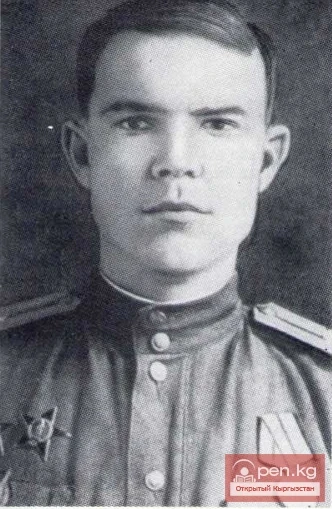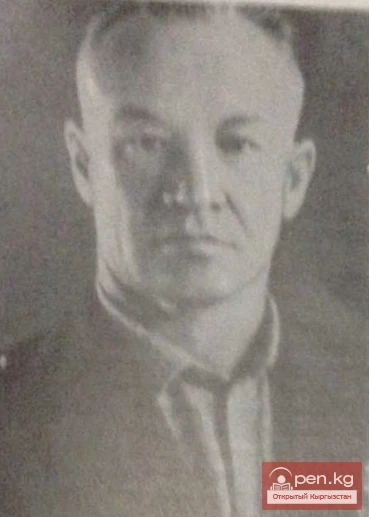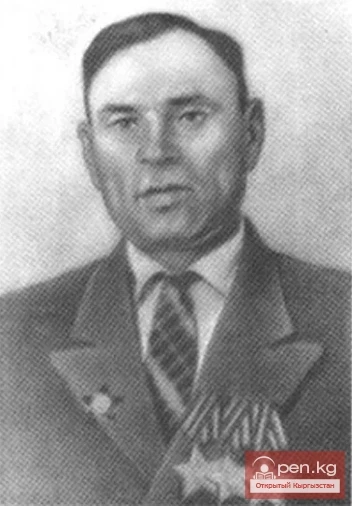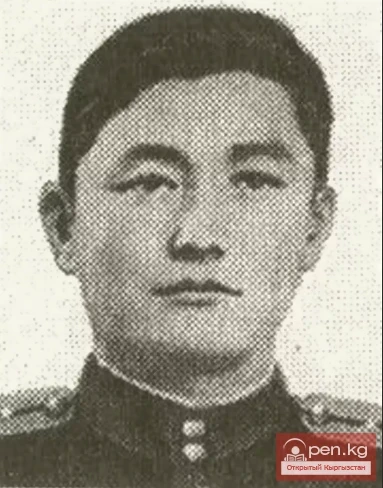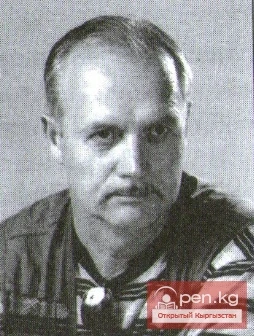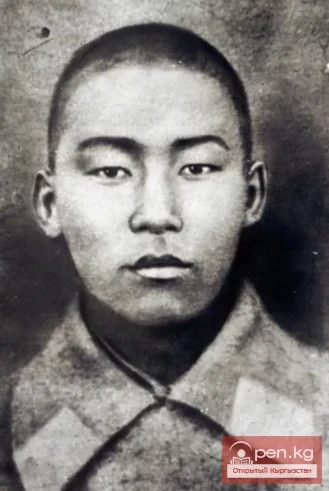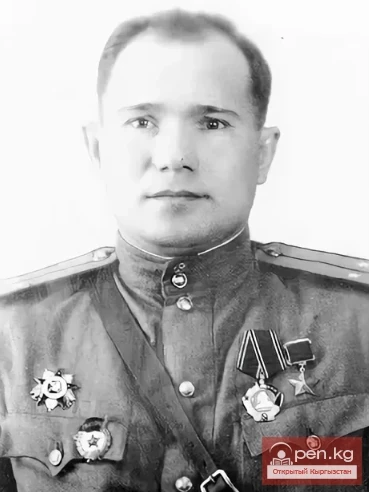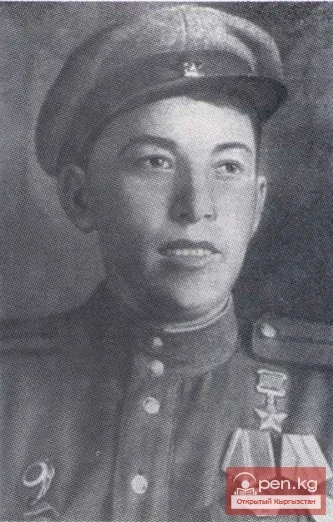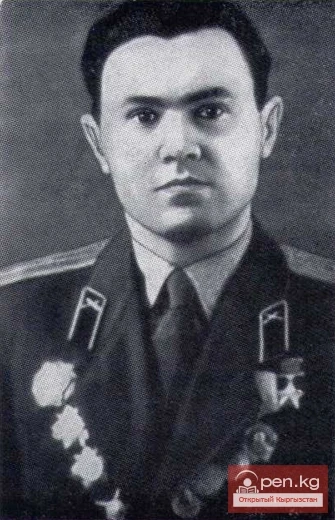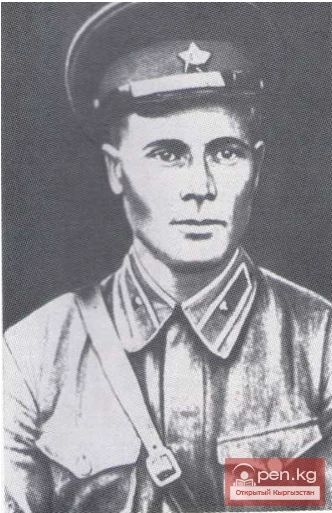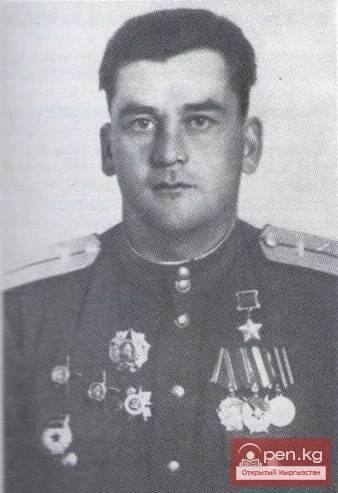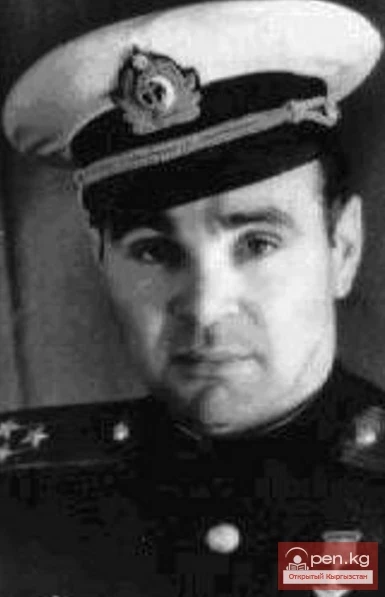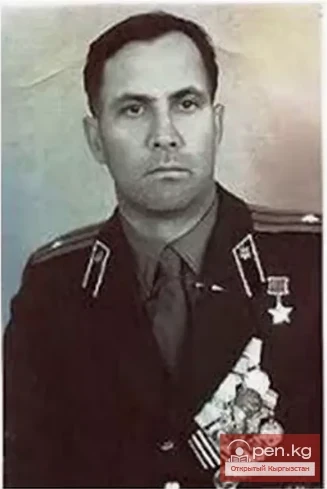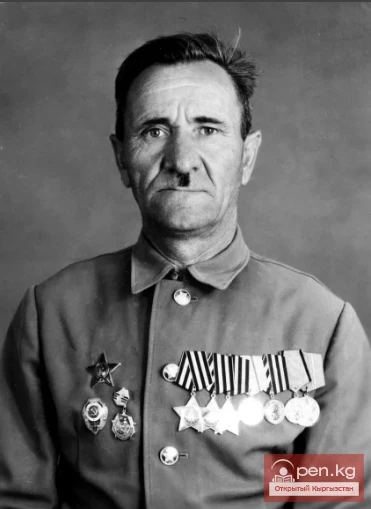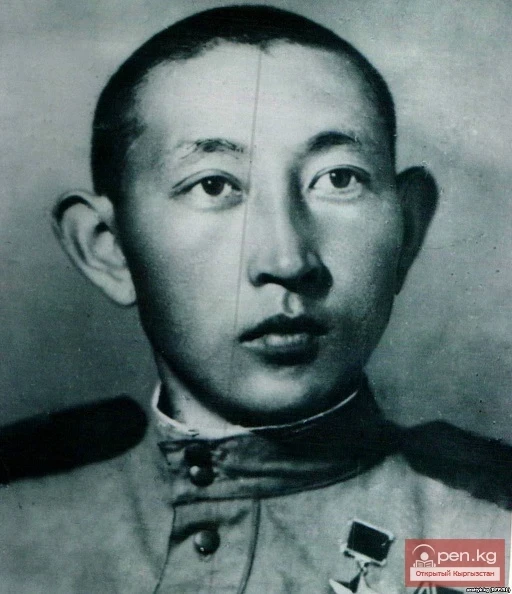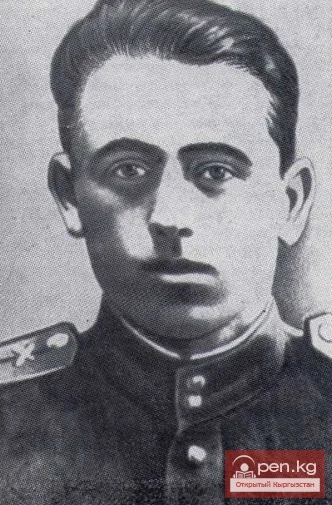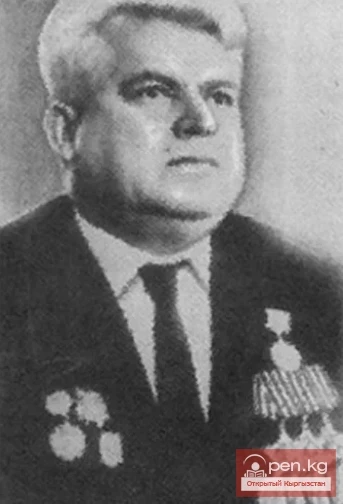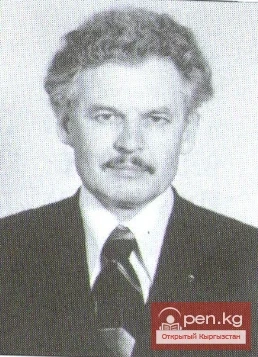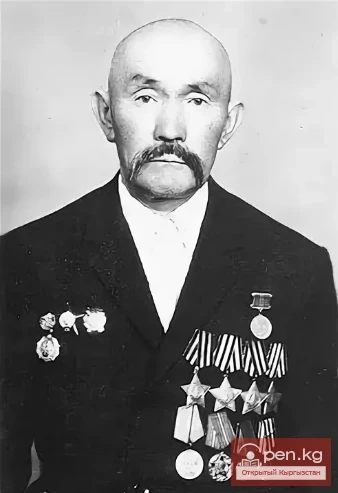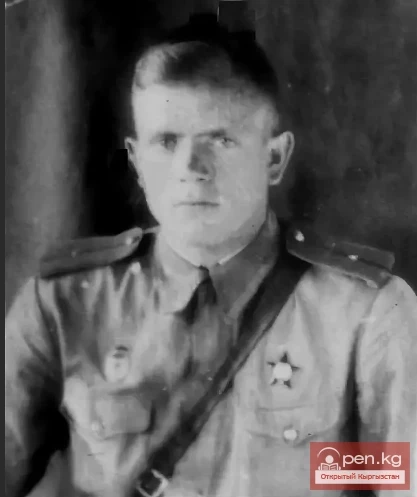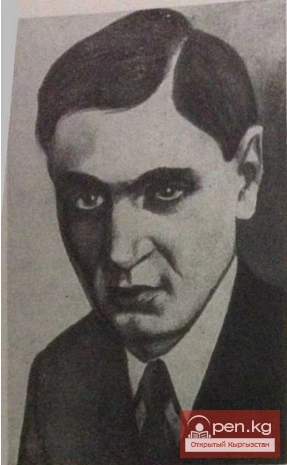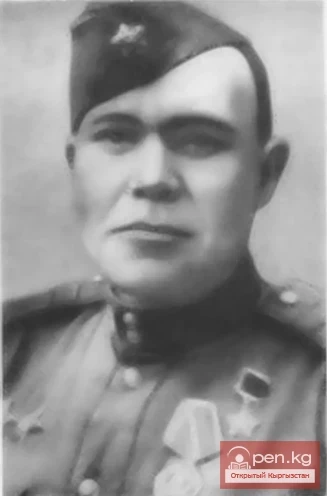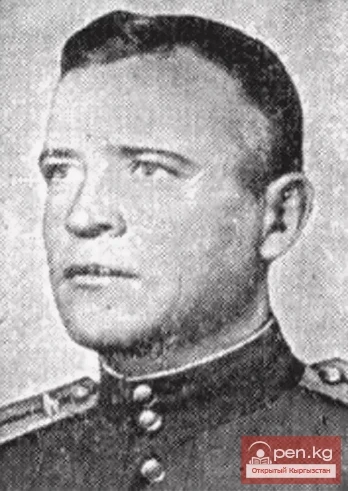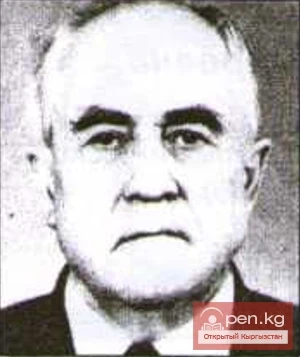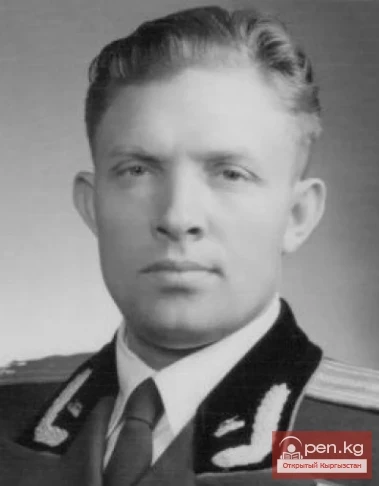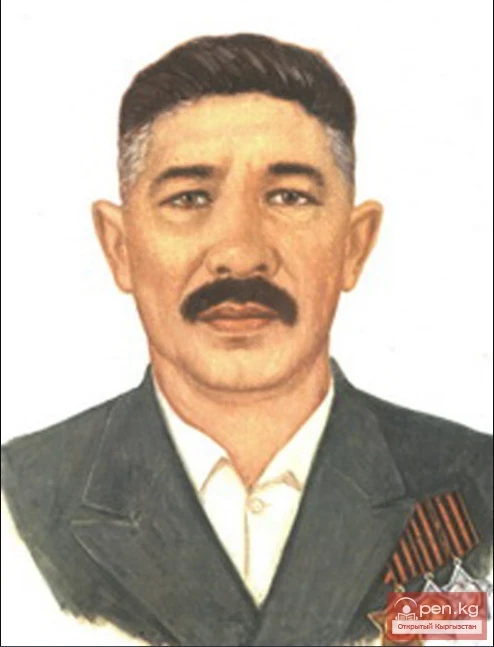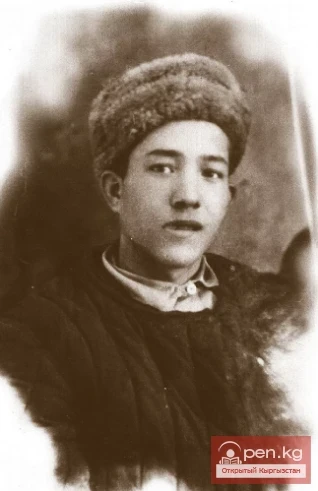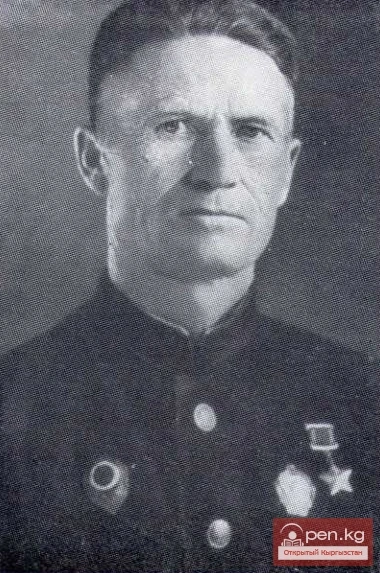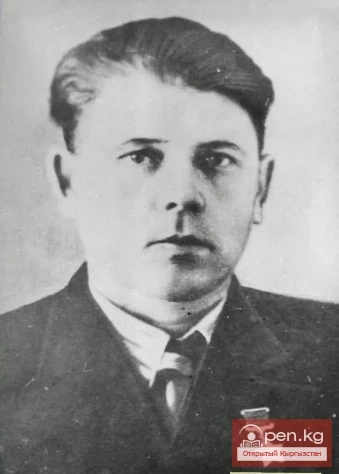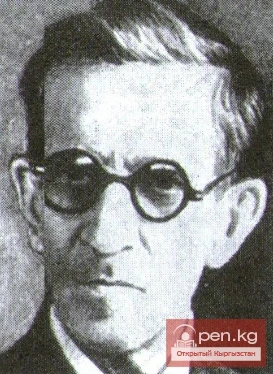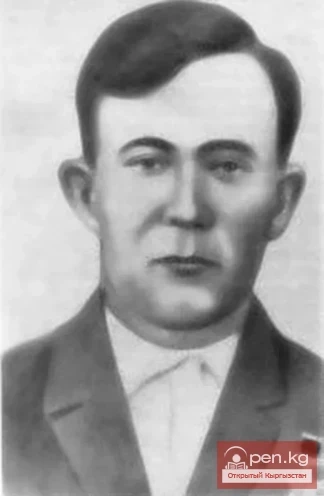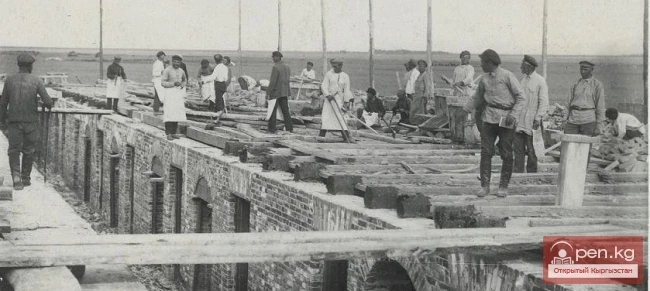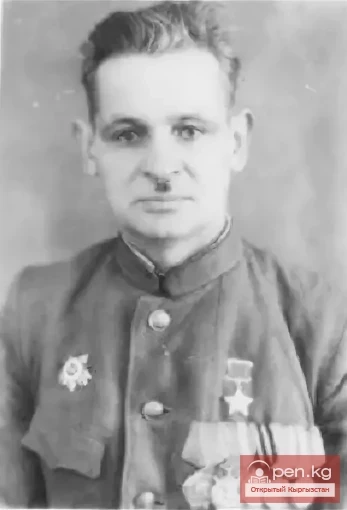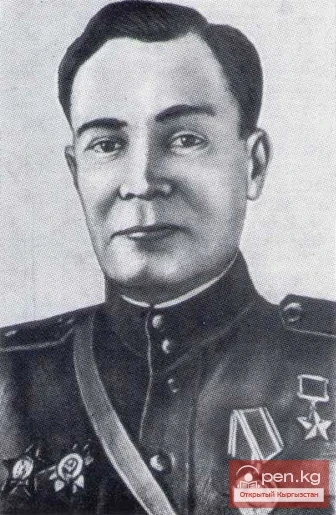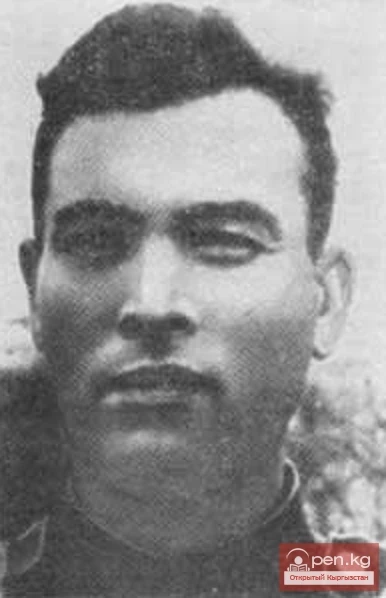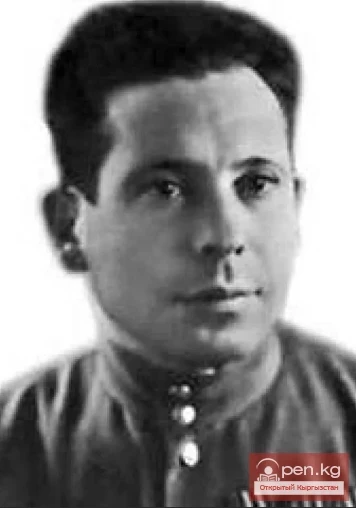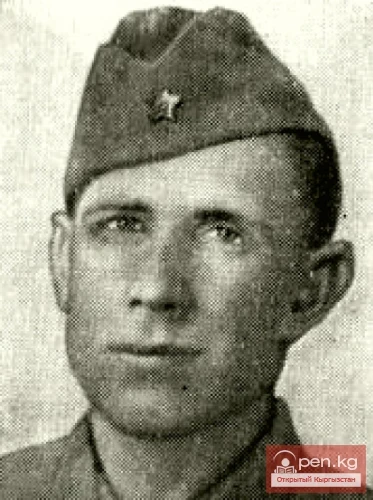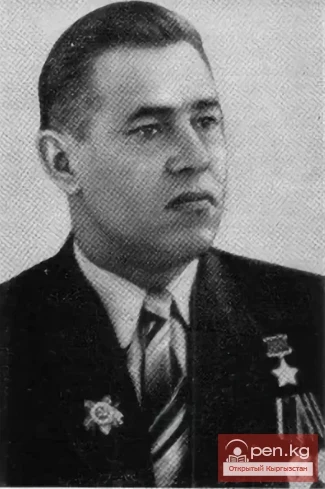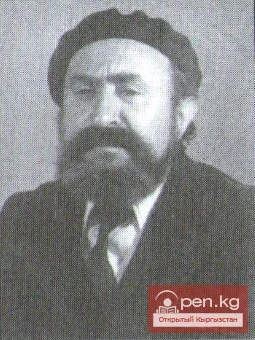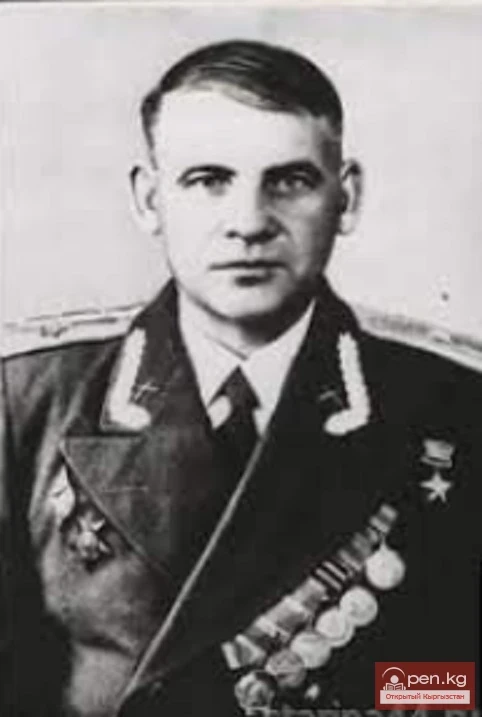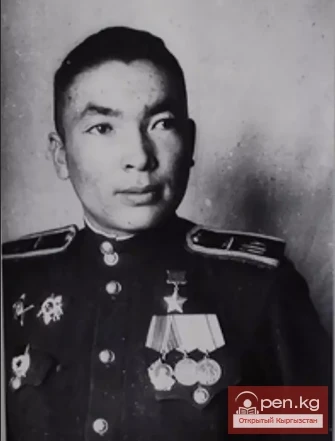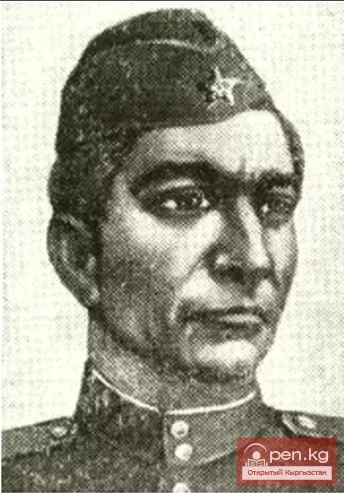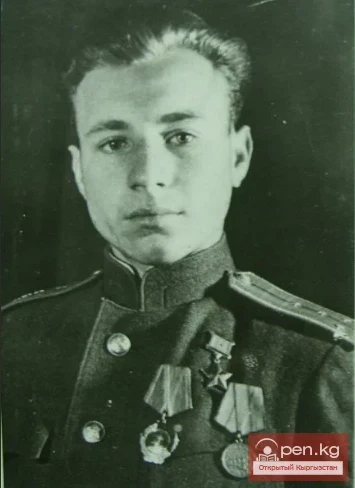
Hero of the Soviet Union Vasily Petriyshev
Vasily Petriyshev was born in 1923 in the city of Talas, Kyrgyz SSR. Russian. Komsomol member. He was drafted into the Soviet Army in 1941 and sent to the Frunze Infantry School. Senior lieutenant, commander of a rifle company. He fought on the Stalingrad, Don, and Steppe fronts.
On November 1, 1943, for his courage and bravery displayed in battles for the liberation of Kharkov, Vasily Petriyshev was awarded the title of Hero of the Soviet Union. His glorious combat path was later marked by several combat awards.
After the Patriotic War, V. P. Petriyshev continued his service in the Soviet Army, graduating from the M. V. Frunze Military Academy. In 1977, he retired. He lives in Moscow.
FIRE ON ME
Born in Talas, studied, joined the Komsomol... On June 18, 1941, there was a graduation evening at the 2nd Talas Secondary School, as always in such cases filled with congratulations, wishes, and dreams for the future.
Then the whole class welcomed the dawn and promised to carry through life the enthusiasm and unquenchable thirst for knowledge, creative searches, and to meet again in the walls of their native school in ten years.
No one could have imagined then that in a few days, a part of the heaviest trials that fell to our people in those years would rest on their young shoulders.
After graduating from the Frunze Infantry School, Lieutenant Petriyshev was appointed commander of a platoon in the 960th Rifle Regiment of the 299th Rifle Division in June 1942. Two months later, he entered battle on the Stalingrad front straight from the march. Here, on the banks of the great Volga, he faced the hated enemy, and soon he was wounded...
The 299th Rifle Division, in cooperation with other units of the 53rd Army, broke through the enemy's defenses on the Kursk Bulge, advancing westward day and night, liberating temporarily occupied territory from the German-fascist invaders, and reached the approaches to Kharkov.
Not allowing the enemy to consolidate in the village of Polevoye, the company under Petriyshev's command captured the village and attempted to seize the height "201.7," dominating the surrounding area. Under heavy fire, the fascists forced the company to take cover before the slopes of the height.
Petriyshev experienced much in the battles for Stalingrad and on the Kursk Bulge. The command knew how his combat skills had grown, his ability to strike the enemy in any conditions. And when it was decided who to assign to capture the height, division commander Major General Travnikov ordered that senior lieutenant Vasily Petriyshev lead the combined company.
The decision of the division commander was conveyed to Petriyshev. He was not surprised that the choice fell on him — the command knows best. A soldier is not asked. He obeys the order.
Setting the task before the company commander, the general emphasized the special importance of capturing the height as quickly as possible, and concluded:
— We must seize the height today! This will disrupt the fascists' defense system, provide an opportunity to control the enemy's actions, and create conditions for further advancement on Kharkov. Report the battle plan in an hour.
Having studied the approaches to the height, Petriyshev reported his plan, according to which, on the night of August 16, a smaller group would begin an offensive on the main southwestern defensive lines of the height, creating the appearance of active actions. When the enemy concentrates fire in this direction, the main group, having approached unnoticed to an acceptable distance, would launch a swift attack on the Germans from the flank and rear. The plan was approved.
The calculations proved correct. Falling for the ruse, the Germans concentrated their main forces to repel the attack of the group conducting a diversionary battle. Meanwhile, the second group under Petriyshev's command unexpectedly attacked the enemy from the northeast. Bombarding the enemy's firing points with grenades, destroying a gun, an enemy tank, and shooting at the fleeing panicked fascist soldiers, 16 warriors seized the height conditionally marked "201.7."
— Now this height is ours, forever, eternally,— Petriyshev said firmly.— From here, our path is only to Kharkov.
It was clear to everyone that the enemy would spare no effort to drive them from this important position, from where the way into the depths of their defense opened... And that is exactly what happened. After a while, several shells exploded on the height, throwing up clouds of sand and dust, and then, under the cover of tanks, the fascist soldiers, screaming, charged up the slope. As soon as the tanks approached throwing distance, anti-tank grenades flew into them, and a lead rain from machine guns and rifles fell on the enemy infantry.
The two burning tanks had a sobering effect on the fascist soldiers. They stopped and then, suffering losses, retreated.
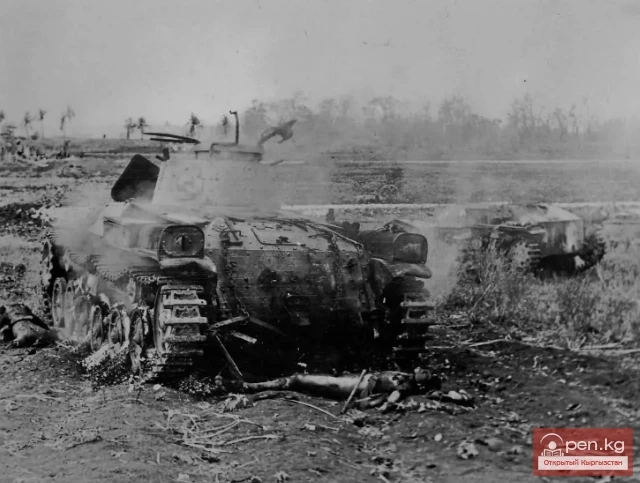
Some time passed. Again, the approaching roar of an engine was heard. The fascist soldiers, under the cover of a flamethrower tank, crouched low to the ground, charged the height. The armored monster burned everything that could burn with its thick fiery tongue, leaving behind charred earth. The smoke and ashes made it hard to breathe, it burned in the mouth, and blinded the eyes.
Changing positions in the trenches, the brave men opened fire on the flamethrower and the moving silhouettes of the fascist soldiers, whose advance was aided not only by the flamethrower but also by clouds of smoke that shielded them from aimed fire. At times it seemed that the enraged Germans would soon break into the positions and crush the handful of brave men.
In the crucial moment of the battle, Lieutenant Starodubtsev jumped out of the trench and, standing tall, shouted:
“Braver, comrades! For the Motherland! Death or victory!”— and threw a bundle of grenades at the flaming monster. The flamethrower tank shuddered and froze in place. Having performed an act of heroism, Starodubtsev perished.
The ranks of the defenders of the height thinned with each passing hour. But when the enemy attacked for the third time, the brave men again stopped the enemy's onslaught with grenades and heavy fire, and eliminated the fascists who had broken into the trenches in a short hand-to-hand fight.
After a while, the enemy began to advance again under the cover of tanks firing from guns and machine guns. The height was filled with a deafening roar. Dust and smoke allowed one of the tanks to approach the trench closely. Opening the hatch, the fascists began to throw grenades into the trenches.
Overcoming the pain from a concussion, Vasily Petriyshev froze for a moment in the trench like a legendary hero, rooted in the ground, drawing strength from it. Overcoming the pain, Vasily Petriyshev threw an anti-tank grenade, which hit the open hatch. The tank exploded.
Inspired by the brave actions of their commander, all who could still hold a weapon stood as a wall against the advancing Germans. The grenades ran out, and only a few rounds remained in their rifles. Addressing the soldiers, Petriyshev said:
— Comrades, we will stand on this height as the Panfilovtsy did at Dubosekovo. We will die, but we will not retreat!
When the enemy launched a new attack, the significantly thinned handful of brave men, skillfully changing positions, fought off the enemy with their last rounds. In the heat of battle, Corporal Sizov reported to Petriyshev: “Communication with the regiment command has been restored.”
Petriyshev immediately reported the situation on the height to the regiment commander, Major Sorokin. The latter, promising to send reinforcements soon, said: “We must hold out, endure!”
The battle continued. With each passing minute, the situation on the height became more difficult. Only seven defenders remained capable of fighting alongside Petriyshev. There were only a few rounds left... Not knowing the strength of the defenders of the height, the Germans did not advance, apparently waiting for reinforcements for a new assault, but shelled the height from cover. The day was drawing to a close.
Consulting with the soldiers, Petriyshev made a decision, which boiled down to the fact that since there were no ammunition, they had to deliver a final powerful blow to the enemy with their artillery, and if they had to accept death, then to do so with dignity. And he firmly conveyed to the regiment headquarters:
— Open fire on me!.. Do you hear, fire — on me! On me!..
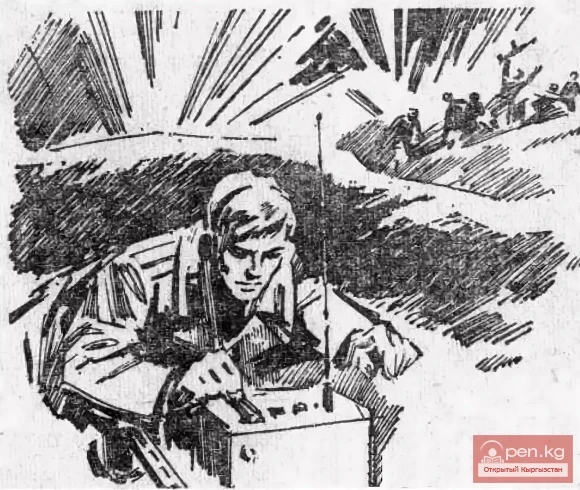
The regiment commander heard him. For a moment he was stunned by such a request, and then said: “You there with the men...”
Upon receiving the response, the regiment commander understood that the brave men had no other choice. But he did not give the order immediately. Several agonizing minutes passed, seeming like an eternity, and in the east, a glow appeared. The ground heaved from the explosions of artillery shells. For several minutes, a fiery whirlwind raged on the height. Suffering heavy losses, the tanks and infantry of the fascists abandoned the approaches to the height.
Early in the morning, the Petriyshevites heard a united “Hooray!” This was the regiment's units going into the attack. Gathering their last strength, the four remaining defenders of the height moved forward: senior lieutenant Petriyshev, junior lieutenant Zhenchenko, senior sergeant Polikanov, and sergeant Breusov.
Two days later, the front-line soldiers read a leaflet issued by the political department of the 53rd Army: “This is how heroes fight.
The immortal feat of the warrior-heroes under the command of officer Petriyshev.”
A few days before Komsomol member Vasily Petriyshev turned 20, for his feat, courage, and bravery displayed in battles on the height, he was awarded the title of Hero of the Soviet Union by the Decree of the Presidium of the Supreme Soviet of the USSR on November 1, 1943. Breusov, Zhenchenko, and Polikanov were also honored with this title.
Then, among the first, Petriyshev crossed the Dnieper, participated in the liberation of cities and villages of right-bank Ukraine from German-fascist invaders. With his martial feat, the valiant commander inscribed a glorious page in the chronicle of courage, unmatched in spirit and bravery, and fiery sonly devotion to his Motherland. In June 1944, he was sent to study at the M. V. Frunze Military Academy, where he met Victory Day.
There was also another significant day in our countryman's life: he participated in the historic Victory Parade on June 24, 1945, on Red Square in Moscow.
The ceremonial march of the combined regiments of all fronts lasted for two hours... Suddenly, the orchestra fell silent. Red Square plunged into silence. And then, to the sound of drums, 200 Soviet soldiers, in the ancient custom of our land — to disgrace the enemy's banners — threw 200 fascist flags onto the wet stones at the foot of the Mausoleum of V. I. Lenin. Never before had Petriyshev felt the strength of his Motherland, the greatness of the feat of the Soviet people so strongly.
After graduating from the M. V. Frunze Military Academy, Petriyshev continued his service in the Soviet Army, passing on his combat experience to new generations of officers and soldiers. In March 1977, Colonel V. P. Petriyshev retired but continued to work at one of Moscow's educational institutions.
Many years have passed, the trenches on height "201.7" have overgrown with grass, wounds have healed, but the memory of the past lives on.
In Kharkov region, they remember those “who are shrouded in legend.” At the request of the citizens of the Derhachevsky district, Vasily Petriyshev was awarded the titles of Honorary Citizen of the settlements of Peresechny and Polevoye. A monument to Soviet soldiers has been erected at the height where the brave men held the test of loyalty to the Motherland and military oath.
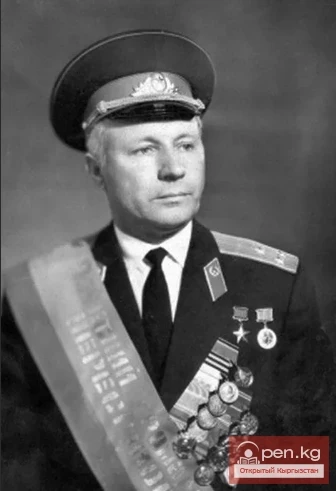
Having changed his military uniform for a civilian suit, communist V. P. Petriyshev remained in the ranks. Invested with the high right to educate the younger generation, he is a frequent guest in youth collectives, caring for instilling in the next generation hard work and boundless devotion to his Motherland and the Communist Party.
V. SURIN
